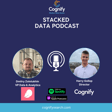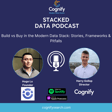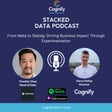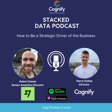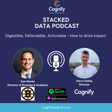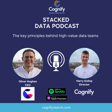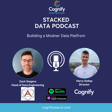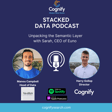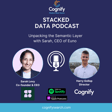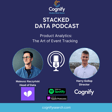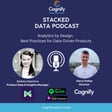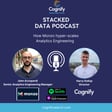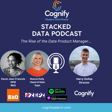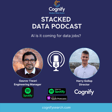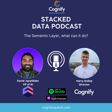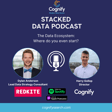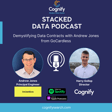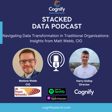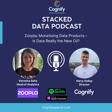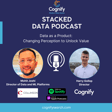
034 - Beyond the pipeline - Tracking the true impact of Analytics Engineering
𝐁𝐞𝐲𝐨𝐧𝐝 𝐭𝐡𝐞 𝐏𝐢𝐩𝐞𝐥𝐢𝐧𝐞 – 𝐓𝐫𝐚𝐜𝐤𝐢𝐧𝐠 𝐭𝐡𝐞 𝐓𝐫𝐮𝐞 𝐈𝐦𝐩𝐚𝐜𝐭 𝐨𝐟 𝐀𝐧𝐚𝐥𝐲𝐭𝐢𝐜𝐬 𝐄𝐧𝐠𝐢𝐧𝐞𝐞𝐫𝐢𝐧𝐠
Analytics Engineering has become one of the most in-demand roles for modern data teams in recent years.
The role goes far beyond just building clean data pipelines and data models, but how do we actually measure that impact?
In today’s episode of the Stacked Data Podcast, we're joined by Ross Helenius, Director of Analytics Engineering & AI Transformation Engineering at Mimecast, to unpack one of the most important (and overlooked) questions in data:
👉 What does success look like for Analytics Engineering: beyond the technical?
𝚆̲𝚎̲ ̲𝚎̲𝚡̲𝚙̲𝚕̲𝚘̲𝚛̲𝚎̲:̲
✅ The true role of Analytics Engineering in modern data teams
✅ Why measuring ROI is so hard and how you can do this
✅ How to define and track impact beyond pipelines, models, and dashboards
✅ Practical KPIs and strategies to showcase business value
✅ Pitfalls to avoid when proving the value of your data function
Ross brings deep experience from the intersection of data, engineering, and AI, and offers actionable insights for data leaders and practitioners alike.
Whether you're leading a data team, building one, or looking to become a better AE this episode is packed with value.
